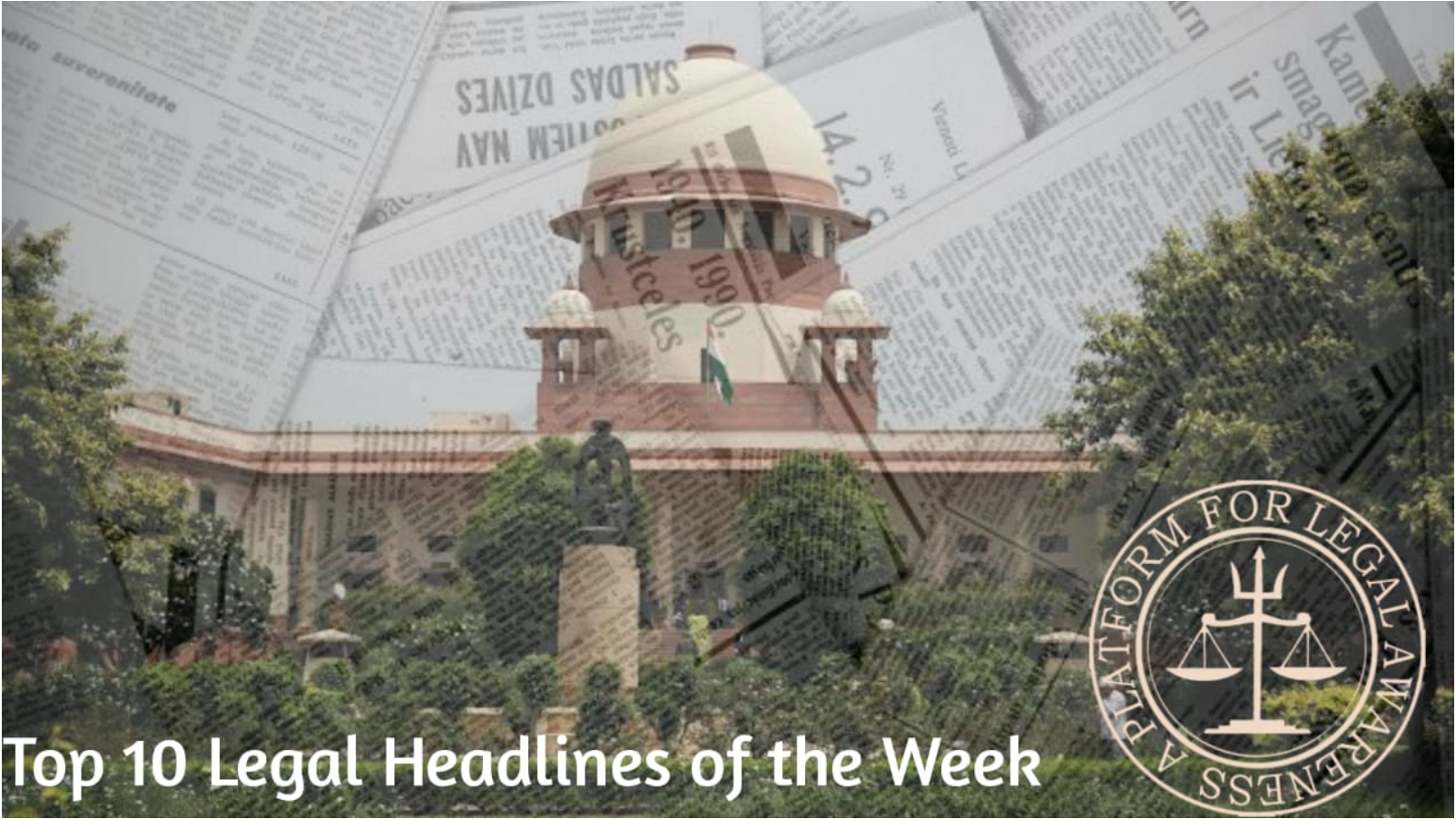1. Bombay HC Upholds Death Penalty in Cannibalism Case
The Bombay High Court, on October 1, 2024, upheld the death penalty of Sunil Rama Kuchkoravi for murdering his 63-year-old mother in Kolhapur in 2017 and later consuming her organs. The court, deeming the crime "barbaric" and "cannibalistic," categorised it as "rarest of the rare." Justices Revati Mohite-Dere and Prithviraj Chavan noted no scope for Kuchkoravi’s reformation. He was convicted of the heinous act by a Kolhapur Sessions Court in 2021, which also emphasised his lack of remorse.
2. Justice Datta Criticizes NALSA for Five-Star Hotel Stays for Judges While Neglecting Poor Litigants
Supreme Court Justice Dipankar Datta criticised the National Legal Services Authority (NALSA) for providing five-star accommodations to judges attending conferences despite lacking funds to support travel and lodging expenses for poor litigants in lengthy legal battles. Justice Datta recalled a case where NALSA and other legal services opposed his proposal to assist a struggling litigant financially. He emphasised that NALSA, under the 1987 Legal Services Authorities Act, must prioritise serving the marginalised, not luxury for officials.
3. Supreme Court Criticizes NCPCR for Misusing Article 32 in Jharkhand Child Rights Case
The Supreme Court reprimanded the National Commission for Protection of Child Rights (NCPCR) for filing a writ petition under Article 32, intended for citizens to enforce fundamental rights, against Jharkhand. The NCPCR sought a Supreme Court-monitored investigation into alleged child trafficking by missionary organisations. Still, the Court, led by Justices BV Nagarathna and N. Kotiswar Singh, found the petition vague and inappropriate. The Court emphasised that NCPCR has statutory powers to investigate and act independently under the Child Rights Act without involving the judiciary unnecessarily.
4. Supreme Court Halts Police Action in Isha Foundation Case, Transfers Petition to Itself
The Supreme Court has restrained police action against Sadhguru's Isha Foundation and transferred a habeas corpus petition from the Madras High Court to itself. The petition was filed by Dr S Kamaraj, alleging that his daughters, Geetha and Latha, were being held captive at the ashram. After interacting with the women, Chief Justice D.Y. Chandrachud confirmed they were at the ashram voluntarily and free to leave. The Court ordered the Tamil Nadu Police to submit a report but barred further action based on prior high court directives.
5. Centre Opposes Striking Down Marital Rape Exception in Supreme Court
The Central Government has opposed the removal of the marital rape exception in a recent Supreme Court affidavit, arguing that labelling non-consensual acts within marriage as "rape" is disproportionate. While acknowledging that such violations should be criminalised, the government emphasised existing legal remedies and argued for distinct treatment of marital and non-marital sexual violations. Most states support retaining the exception, further complicating the ongoing debate about balancing individual rights and societal norms within marriage.
6. Supreme Court Directs Madras High Court to Reassign Senthilbalaji's Case to Less-Burdened Judge
On September 30, 2024, the Supreme Court instructed the Madras High Court Chief Justice to assign the cash-for-jobs scam case involving Tamil Nadu Minister V. Senthilbalaji to a trial judge with a lighter workload. Justice A.S. Oka noted that the current Special Judge manages over 20 cases involving MPs and MLAs. Senthilbalaji was granted bail after spending 15 months in jail, and the Supreme Court is reviewing an appeal to quash the charges against him amid concerns over the lengthy prosecution process.
7. Supreme Court Canteen Resumes Meat Service After Lawyer Protests
On October 4, 2024, the Supreme Court canteen in New Delhi reinstated its meat menu following protests from a group of lawyers against the contractor's temporary decision to serve only vegetarian food during Navratri. Advocates expressed concerns that restricting dietary options undermines pluralism and mutual respect within the legal community. They argued that the canteen should cater to diverse nutritional preferences while offering special options for those observing the festival. The contractor's earlier decision was reportedly made independently, not as an official directive from the court. The Supreme Court will resume hearings on October 14 after the Dussehra break.
8. Supreme Court Dismisses Review Petitions on States' Authority to Tax Mineral Rights
On October 5, 2024, the Supreme Court upheld its earlier ruling that allows states to levy taxes on mineral extraction rights, rejecting review petitions against the decision made on July 25. In the 8:1 majority verdict, the court affirmed that legislative power over mineral taxation lies with the states, and the royalty paid on minerals does not constitute a tax. Chief Justice D.Y. Chandrachud and seven other judges dismissed the petitions, while Justice B.V. Nagarathna dissented, arguing that a case for review had been established.
9. Supreme Court Dismisses Review Plea Against Electoral Bonds Verdict
On October 6, 2024, the Supreme Court dismissed a petition seeking a review of its February 15 judgment, which deemed the electoral bonds scheme unconstitutional. A five-judge bench, led by Chief Justice DY Chandrachud, found no apparent errors in the original ruling. The court had previously ordered banks to cease issuing electoral bonds and declared specific provisions of the Income Tax Act and the Representation of People Act ultra vires. The ruling emphasised that lack of transparency in political funding could disenfranchise voters and compromise their right to informational privacy.
10. Supreme Court Grants Anticipatory Bail to Actor Siddique
The Supreme Court has granted anticipatory bail to Malayalam actor Siddique in a sexual assault case following the dismissal of his plea by the Kerala High Court. The court questioned the delay in the complaint, filed eight years after the alleged incident. Siddique is required to cooperate with the investigation and appear when summoned. This decision comes in the wake of the Justice Hema Committee report addressing sexual abuse in the Kerala film industry, which has led to multiple cases against prominent figures.

